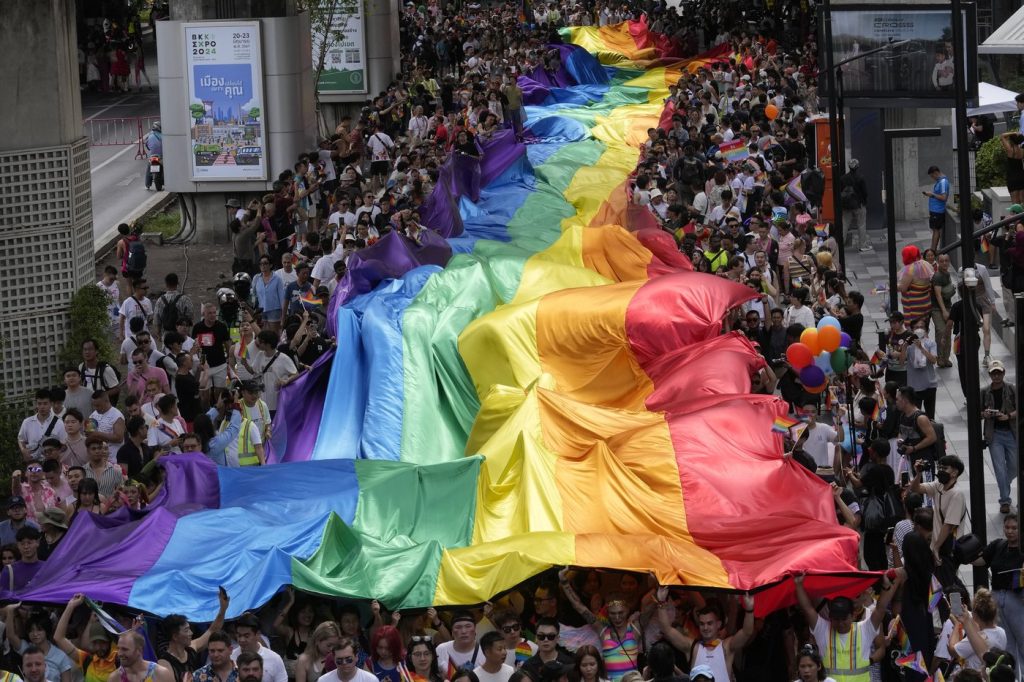Pride Month is set to commence globally with a variety of events starting this weekend. This annual celebration consists of parades and gatherings that honor LGBTQ+ culture and advocate for rights. Fundamentally, Pride serves as both a festive occasion and a platform for protest, especially in the U.S. this year, where it aims to spotlight policies that impose restrictions on transgender individuals and seek to curtail diversity, equity, and inclusion initiatives across government, education, and business sectors.
The origins of Pride Month can be traced back to Gay Pride Week in late June 1970, occurring just a year after the notorious police raid on New York City’s Stonewall Inn, a landmark gay bar. The June 28, 1969, raid ignited a wave of protests and was a significant catalyst for the gay rights movement. The inaugural Pride Week featured marches in cities such as Chicago, Los Angeles, New York, and San Francisco, subsequently expanding to various other locations.
This weekend, several events are scheduled, such as those in Philadelphia and New Orleans on June 14, Chicago on June 21 and 22, and New York during the weekend of June 28 and 29. Internationally, Pride festivities will take place in cities like Tokyo on June 8; Toronto from June 27-29; São Paulo on June 22; and Paris on June 28. Notably, events will extend beyond June, with World Pride in Washington, D.C., running from May through June 8, and other celebrations planned in London for July, Rio de Janeiro in November, and Atlanta in October.
In 1999, former President Bill Clinton designated June as Gay and Lesbian Pride Month, marking a significant recognition by a U.S. president. However, political dynamics shifted when President Donald Trump returned to office in January, prompting a rollback of LGBTQ+ protections, particularly targeting transgender individuals. His administration introduced policies that hindered transgender people from changing their gender on passports and pursued the removal of transgender military personnel. Additionally, measures were taken to restrict gender-affirming healthcare for minors and bar transgender athletes from participating in girls’ or women’s sports competitions.
These actions have prompted legal challenges and reflect broader, ongoing anti-LGBTQ+ sentiment in Republican-led states, with varying public opinions on such policies. Opposition to Trump’s agenda has manifested within Pride celebrations across the U.S., where organizers like Wes Shaver of Milwaukee Pride, which expects nearly 50,000 attendees, emphasize the theme “Celebrating the Power of Pride.” Notably, they will showcase exclusively transgender and performers of color in response to current policies. In Philadelphia, Jeremy Williams noted a focus on unity rather than heightened protest.
This year also marks the 10th anniversary of the U.S. Supreme Court’s Obergefell v. Hodges decision that legalized same-sex marriage nationwide. According to a recent Pew Research Center poll, about two-thirds of LGBTQ+ adults feel the ruling fostered greater societal acceptance of same-sex couples, although a stark divide remains regarding acceptance of nonbinary and transgender individuals.
However, not all is optimistic regarding corporate support for Pride events, with several major companies pulling back on sponsorships this year. Anheuser-Busch, for instance, withdrew its support for PrideFest in St. Louis, leaving organizers significantly short on budget. Similarly, NYC Pride reported a 20% drop in corporate sponsorships, notably from PepsiCo and Nissan, indicating a trend of retreat from brand activism. Nonetheless, many Pride events continue to receive corporate contributions, albeit under conditions of anonymity.










